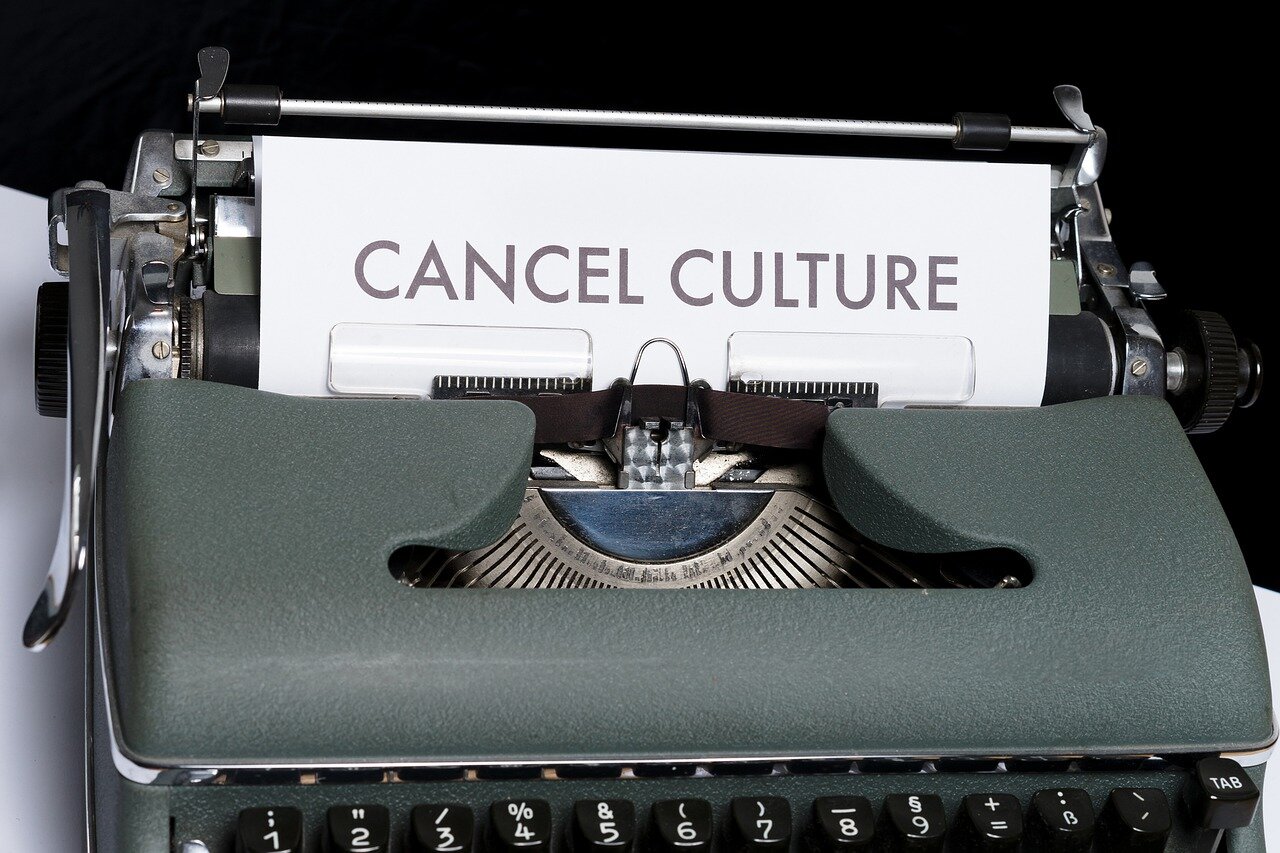How We Can Reverse Cancel Culture
Creative Commons image.
(OPINION) For more than 400 years, Americans have created culture, forged in the fires of diversity. Today rather than create culture, we cancel culture that opposes or offends us.
Credit cards get canceled. Subscriptions get canceled. Cable television, phone service, lawn care, hair and dentist appointments get canceled, but people? How is it people get canceled? How is it in America, where freedom of speech has survived for centuries, that hating your neighbor is now the norm?
Cancel culture refers to “a way of behaving in a society or group, especially on social media, in which it is common to completely reject and stop supporting someone because they have said or done something that offends you,” according to Cambridge Dictionary. The term-turned-phenomenon roared to the social forefront as the #MeToo movement swept the country. The more public figures accused of sexual violence or racist or anti-LBGTQ+ remarks, the faster cancel culture spread.
But cancel culture has spread beyond public figures and celebrities believed to have committed a crime or injustice. Increasingly, everyday citizens are falling prey to the cancel culture mob. Ordinary people like Dominique Moran, a former Chipotle manager, Greg Paton, a former communications professor at the University of Southern California and David Peterson, an art professor at Skidmore College, have become victims of the social media mafia. They have lost jobs, been shamed, ridiculed and threatened, accused of bigotry, racism or marginalizing minorities. But in many cases, the damaging accusations were also false. Canceling depends more on whether someone is offended than on evidence of the offense.
Dr. Utpal Dholakia writes at Psychology Today that the act of “publicly rejecting and pursuing harm against a perceived transgressor” is conducted with conscious, personal choice. It is intentional. Although it begins as an individual act, it spreads like a contagion once it enters social media, according Dholakia, with great potential for harm. In other words, disagreeing with anyone could warrant your cancelation, whether your business or just your reputation is ruined over a perceived wrongdoing.
How can we rectify cancel culture? First, reverse it. Stand in the perceived offender’s shoes. Look at the dilemma through their eyes and do what you’d want others to do for you, following the guidance of Luke 6:31. Reflecting on how we want to be treated should make us hesitate to cancel anyone, especially when we lack context about the accusations.
Second, get rid of the beam in our own eye before addressing the speck in our neighbors, as Matthew 7:3-5 teaches. If we’ll do inventory, the beam in our eye has opposed, offended and hurt others many times, but we received mercy and grace. Would it hurt to extend mercy and grace, offer or accept forgiveness as Matthew 18:21-35 instructs? Micah 6:8 admonishes us to do justly, love mercy and walk humbly before God. There are times the just, merciful and humble thing to do is leave the speck alone.
Consider your last disagreement or offense with your spouse, child, sibling or friend. Was a “canceling” campaign the next course of action? I dare say it wasn’t. The hue changes when viewed from within family or friends’ context. The transgression is less pronounced because we give friends and family the benefit of the doubt. Understanding the circumstances and challenges the transgressor is facing march to the forefront. However, when the face is unfamiliar, and part of a social media tantrum, we lack that behind-the-scenes information. It’s easy to jump on the cancel culture bandwagon and join the free-for-all. There’s one big problem. The social media blip is a living, breathing human, now put in jeopardy thanks to mob mentality.
Thirdly, remember the words from Galatians 6:7, “Don’t be deceived; God is not mocked: for whatever a man sows that he shall reap.” When seeds are sown, they produce after their kind. Tomatoes seeds eventually become tomatoes, not cabbage or grapes. Our words and actions work the same way. Martin Luther King Jr. said, “Hate cannot drive out hate; only love can do that.” What we project from ourselves will come back to us in multiplied dividends.
Before canceling someone else, maybe we should ask, “Do I want to be canceled?” Remember, mud pie is not appetizing.
Robyn Spradlin holds a B.A. in Communication Studies from Regent University and is pursuing an M.A. in Journalism at Regent University. She is a freelance journalist with the Evangelical Press Association and has self-published two books; Grace Revealed and Against All Odds: Our Story.

